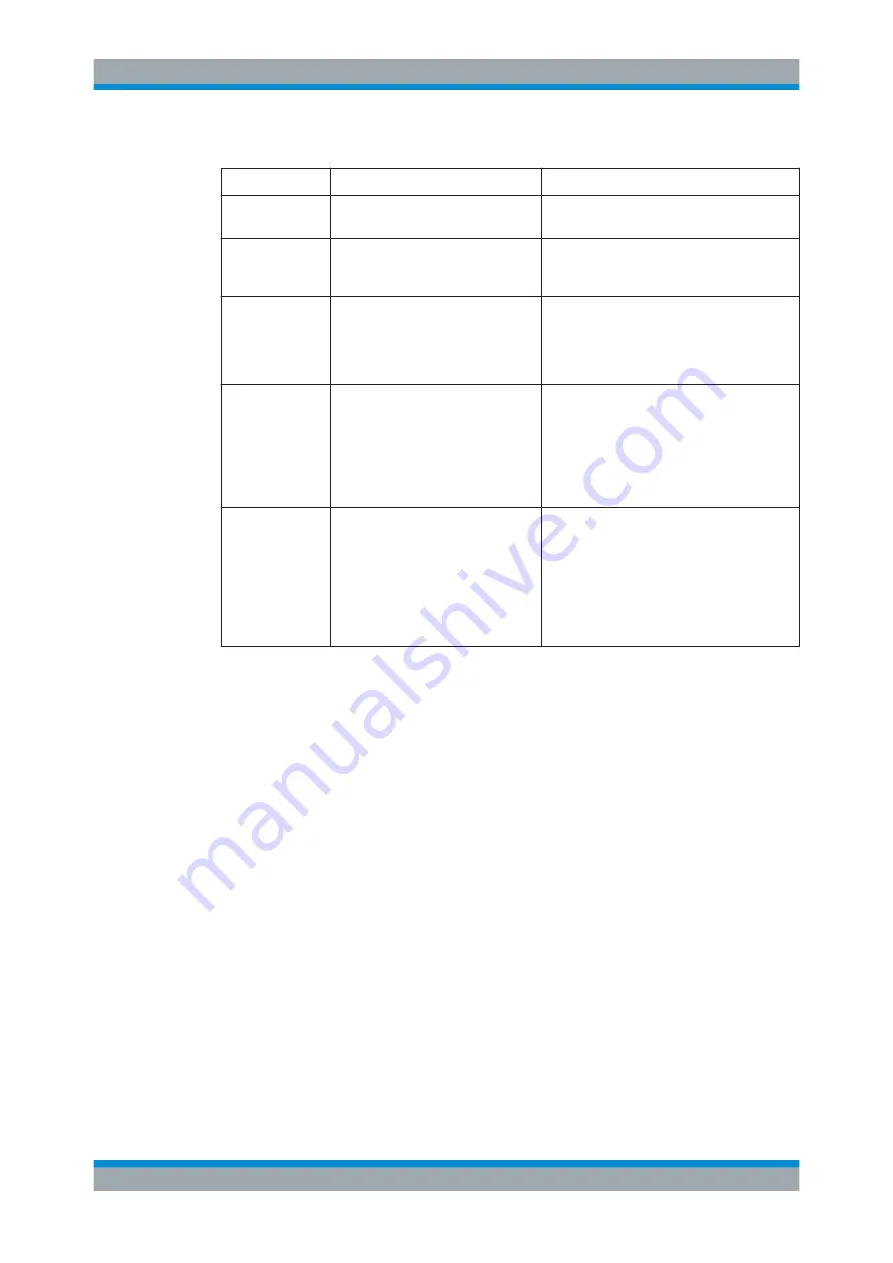
Measurements and Results
R&S
®
FSW
243
User Manual 1173.9411.02 ─ 43
Table 7-12: Limit check types
Limit check type
Pass/fail criteria
Limit line definition
"Absolute"
Absolute power levels must not
exceed limit line
Defined by the "Abs Limit Start"/ "Abs Limit
Stop" values for each range
"Relative"
Power deviations relative to the TX
channel power must not exceed limit
line
Defined by the "Rel Limit Start"/ "Rel Limit
Stop" values (relative to the TX channel
power), fixed for each range.
"Relative with
function f(x)"
If the power exceeds
both
the abso-
lute
and
the relative limits, the check
fails (see
below)
Defined by the maximum of the absolute or
relative start and stop limit values for each
range. Thus, the start or stop point of the limit
range, or both, are variable (since the maxi-
mum can vary).
"Abs and Rel"
If the power exceeds
both
the abso-
lute
and
the relative limits, the check
fails.
The less strict (higher) limit line is displayed
for each range.
If you use a function to define the relative limit
start or stop value, the signal is checked
against an additional condition: the power
must exceed the absolute limit, as well as the
absolute and relative function values.
"Abs or Rel"
If the power exceeds
either
the
absolute
or
the relative limits, the
check fails.
The stricter (lower) limit line is displayed for
each range.
If you use a function to define the relative limit
start or stop value, the signal is checked
against an additional condition: if the power
exceeds the absolute limit, or the higher of the
absolute and relative function values, the
check fails.
Relative limit line functions
A new function allows you to define limit lines whose start or end points (or both) are
variable, depending on the carrier power. Thus, the resulting limit line can change its
slope within the range, depending on the carrier power. Common relative limit lines are
calculated once for the defined start and end points and maintain a constant slope.
If the relative limit value function is used in combination with the "Abs and Rel" or "Abs
or Rel" limit check types, an additional condition is considered for the limit check (see
).
Limit check results in the result summary
For each range, the peak measured value and the deviation of these values from the
limit line are displayed in the result summary. If the limit check is passed for the range,
the deviation represents the closest value to the limit line. If the limit check is passed
for the range, the deviation represents the closest value to the limit line. If the limit
check for the range fails, the deviation represents the maximum violation against the
limit line. Furthermore, the absolute power levels and the relative deviation of the
peaks from the TX channel power are displayed. Values that exceed the limit are indi-
cated in red and by an asterisk (*).
Spectrum Emission Mask (SEM) Measurement
















































